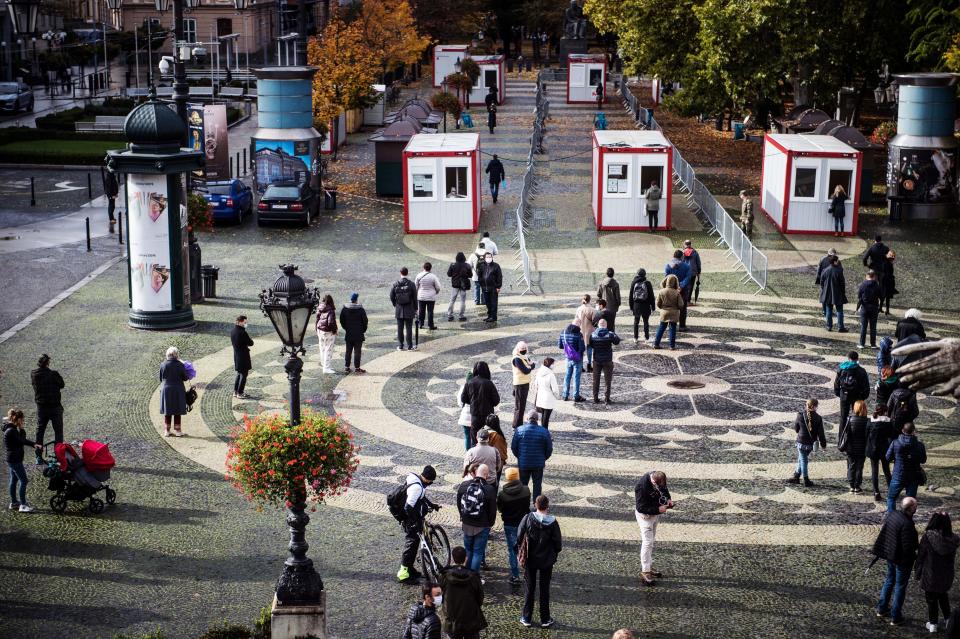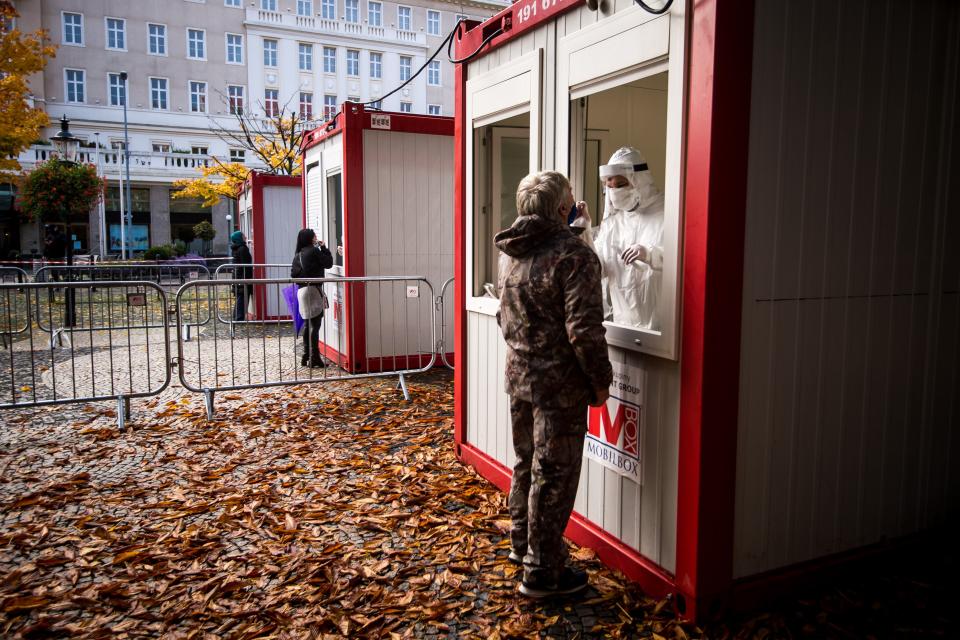The European country testing every citizen for COVID-19

As coronavirus cases continue to surge throughout Europe, one country has adopted a novel approach to testing for the virus.
Last week, Slovakia began a pilot scheme which will see the entire nation tested for COVID in an effort to slash infection rates.
More than 3.6 million Slovaks, two thirds of the population, have been tested already under the programme - which other European nations are hoping to emulate should it prove successful.
But how does the scheme work and what are its aims?

How does nationwide testing work?
The Slovak government has encouraged every one of its citizens to get tested, with all tests remaining free and voluntary.
However, the government will impose lockdowns on people who do not participate – including a ban on going to work.
Over 40,000 medics, soldiers and police officers have been drafted in to help process the vast amount of tests being carried out at around 5,000 pop-up centres across Slovakia.
Upon arrival, Slovaks are given an antigen swab tests – which can yield results in just 15-30 minutes but is less accurate than the molecular PCR method.
How many have tested positive?
As of Monday, a total of 38,359 people or 1.06% of those who took part tested positive and must quarantine, prime minister Igor Matovic told a news conference.
The weekend's results showed that infection rates had dropped substantially in four districts where a pilot round was held a week ago, he added.
A second round of testing is planned for a week's time, with Matovic saying he is hopeful of success if people adhere to the quarantine rules.
Read more: Slovakia to test entire population for coronavirus in global first
Matovic said: "I deeply believe that this solution will work in Slovakia on the condition that those who received certification that they are negative will continue to act responsibly, and those who got a positive result will remain in quarantine with their families.”
Compared with other parts of Europe, Slovakia recorded relatively few cases after the pandemic started spreading in March.
But infections have soared in recent weeks with the country reporting 2,573 COVID-19 cases on Saturday through PCR testing, bringing the total to 57,664, with 219 deaths.
The government has warned the increase could overwhelm hospitals.
Watch: Slovakia aims to test entire population with groundbreaking scheme
What are the drawbacks?
The scheme has faced opposition from some experts who say the antigen tests that Slovakia used are better suited for targeted programmes and need to run with other measures.
Matovic said the government was aware of those concerns but felt that even a 50% success rate in revealing infected people would help.
Opponents of the scheme have pointed to a Czech study that found antigen tests identified only around 70% of infections detected by PCR tests, but the government has insisted that even at that level of accuracy the exercise is worth it.
Critics also question whether requiring people to show a negative test in order to move around freely complies with data protection rules.
Coronavirus: what happened today
Click here to sign up to the latest news and information with our daily Catch-up newsletter

 Yahoo Finance
Yahoo Finance 
